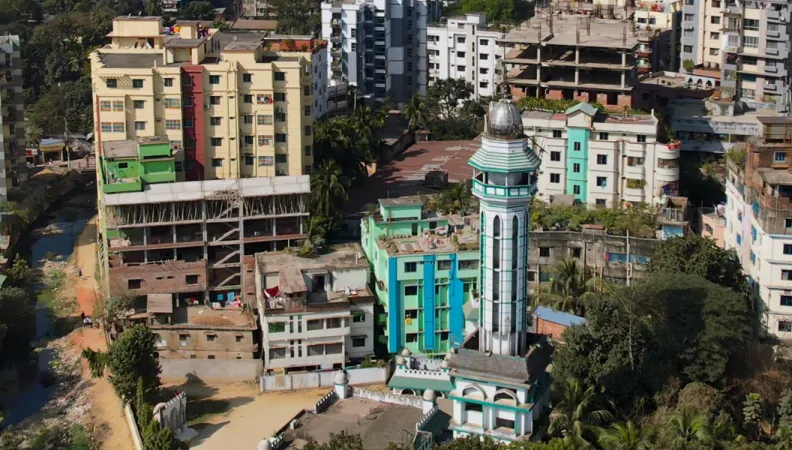Share the page
Bangladesh: Sorting sanitation to protect the ecosystem
Published on

On the southeast coast of Bangladesh, Chattogram is one of the world’s oldest ports with a natural harbor. But the bustling port city struggles to deal with sewage management, which is taking its toll on the environment. Ahead of World Water Day, we take a look at the increasingly ambitious measures being taken to rehabilitate the sanitation system in Bangladesh, with AFD support.
For decades, industrial and domestic effluents have overwhelmed Bangladesh’s feeble sanitation systems and polluted the country’s major waterways, particularly after heavy rainfall. In recent years, the country has improved sanitation services and drinking water, and reduced the rate of open defecation to almost zero. But progress has been patchy.
The city of Chattogram for instance, generates 400 million litres of sewage daily, pumped out via several canals to the Karnaphuli and Halda rivers, into the Bay of Bengal.
Lacking a centralized sewerage system and storm water drainage, Chattogram relies instead on septic tanks and latrines, which are few and overburdened, particularly in the informal settlements that are home to a large proportion of the city’s population.
In this way, the uncontrolled release of untreated wastewater is threatening the country’s ecosystem
Further reading: Water and Sanitation: Our Commitment
Managing the sludge
Mohammed Ibrahim, an engineer and decades-long local activist, says that while newer homes have sceptic tanks, sewage from older homes goes straight into the canals. Indeed, a constant flow of solid waste and plastic often block the Karnaphuli River, the pride of the town.
“All of this sewage has an impact on the ecosystem, and the problem is particularly bad during the rainy season since the sewage mixes with the rainwater,” he says. “Both fish and our ecosystem are severely affected, particularly in the rainy season.”
Growing mosquito populations are “causing havoc” he adds, saying that people are reporting a number of concerning skin conditions.
“People are getting sick”, agrees Laila Ibrahim Banu, a former medical professor and volunteer for a number of local charities.
Recently though, Chattogram Water Supply and Sewerage Authority (CWASA) has made strides towards creating sewer infrastructure throughout the city.
In a masterplan drafted in 2017, CWASA plans to treat the city’s wastewater through a combination of six sewage treatment plants, which would cover 75 percent of households.
AFD will provide financial support to CWASA for the implementation of one of these sewerage systems in the northwest, building on its support of projects in the sanitation sector in Dhaka. This is the first such financing for a project in Chattogram.
Further reading: “Water is Central to Achieving the Sustainable Development Goals”
Linking close to 300,000 people to sanitation services
Now, to bolster the governments’ efforts to improve water and sanitation infrastructure, AFD is supporting work in Catchment 5 in North Kattoli, one of six catchment zones across the city laid out in in CWASA’s masterplan.
By 2030, the initiative, implemented by CWASA, will offer communal sanitation services to about 270,000 residents, by linking them to a 93 km collection network, which will convey collected wastewater to a sewage treatment plant. Another 50,000 people from North Kattoli will gain access to basic sanitation services, such as fecal sludge management.
By rehabilitating vital sanitation infrastructure and removing untreated wastewater outflows, the project will not only reduce environmental pollution, but it will also improve the population’s health, wellbeing, and overall quality of life
“Volunteer organizations should cooperate to educate people about the sewage system,” says Banu. “And the government needs to be stricter about enforcing the law against people who pollute the environment.”
Protecting Communities and Ecosystems
The Chattogram sanitation project addresses Chattogram's immediate sanitation needs, and is also part of a long-term effort to make cities like this one healthier, more resilient, and more livable.
Backed by an AFD sovereign concessional loan of €175 million over 20 years (signed in 2023), the project is expected to conclude by 2030.
